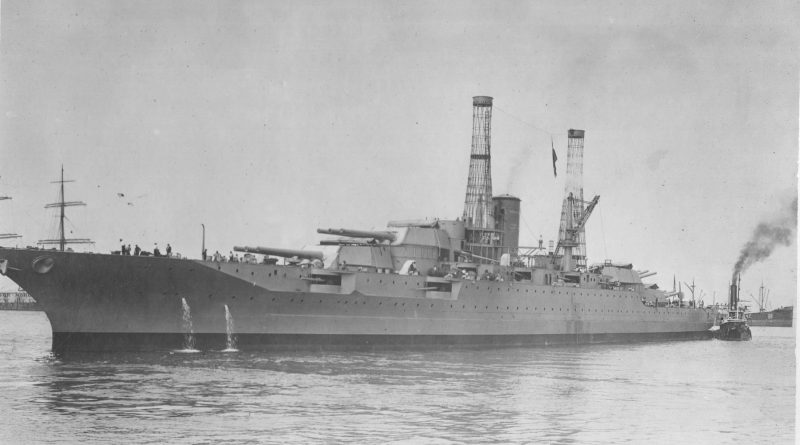December 14 in U.S. military history
1799: Former president and commander-in-chief of the Continental Army George Washington passes away at his home in Mount Vernon (Va.) at age 67.
1924: The battleship USS Mississippi (BB-41) launches a Martin MO-1 observation plane by using its forward turret as an explosive-powered catapult.
1941: While a Japanese sub shells the Hawaiian Islands, Vice Adm. Wilson Brown’s Task Force 11 departs Pearl Harbor, attempting to divert the Japanese fleet from their attack on Wake Island. The fleet consists of the aircraft carrier USS Lexington, three cruisers, and nine destroyers.
1944: Congress creates the temporary, five-star grades of Fleet Admiral and General of the Army. Admirals William Leahy, Ernest King, and Chester Nimitz are promoted to the new rank within days, as are Generals George Marshall, Douglas MacArthur, Dwight Eisenhower, and the Army Air Force’s Henry “Hap” Arnold (who in 1947 will become the only “General of the Air Force”). William Halsey, the United States’ last fleet admiral, will pin on his fifth star on December 11, 1945. And during the Korean War, Gen. Omar Bradley becomes the last man promoted to the elite rank.
1961: President John F. Kennedy informs President Ngo Dinh Diem that the United States would increase military aid and expand our military commitment to South Vietnam. Upon their return from a fact-finding mission, Gen. Maxwell D. Taylor and Special Assistant for National Security Affairs Walt W. Rostow recommend that Kennedy send helicopters, aircraft, military advisors, and support personnel. They also suggested the secret deployment of 8,000 troops for combat operations. Kennedy will implement all but the combat forces.
1964: U.S. warplanes attack targets of opportunity in northern Laos in the first strikes of Pres. Lyndon B. Johnson’s top-secret Operation BARREL ROLL. The air campaign is intended to interdict the flow of communist supplies along the Ho Chi Minh Trail, but also becomes a close air support campaign against Pathet Lao and North Vietnamese forces. Over time, neutral Laos will become the most heavily bombed country in the world.
1972: After Apollo 17 commander – and U.S. Navy captain – Eugene Cernan sets the unofficial lunar speed record at 11.2 mph on the Lunar Rover, Cernan becomes the last human to set foot on the moon.
